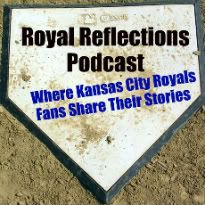Here's a brief breakdown of what The Mitchell Report says about current and former Royals players. I have not included everything that The Mitchell Report said about the following players. You'll need to read the full report to get the full story.
As you read through the report, you'll see the name "Radomski" repeated over and over. He is Kirk Radomski, who according to this article, "pleaded guilty in April to federal charges of illegally distributing performance-enhancing drugs. As part of his agreement with the government, he was required to cooperate with Mitchell's investigation."
You'll also see the name Brian McNamee throughout the report. According to this article, McNamee "worked for the Yankees and as a personal trainer for Clemens and Pettitte."
How reliable are Radomski or McNamee? Who knows, but as you go through the report, you'll see many checks written by players to Radomski. Take that for what it is worth.
Here is the list of Royals named in The Mitchell Report, followed by an excerpt about them from the report:
Hal Morris (played for the Royals in 1998): "Radomski said that he sold Deca-Durabolin and testosterone to Morris in late 1999 when Morris was with the Reds. Morris paid by check. Morris's, with an address we have confirmed was his, is listed in the address book seized by federal agents from Radomski’s residence."
Rondell White (played for the Royals in 2003): "According to Radomski, White started buying performance enhancing substances from him in 2000. White bought both human growth hormone and Deca-Durabolin. In our first interview, before he had access to all the checks his banks were able to supply, Radomski estimated he had engaged in 'six to ten' transactions with White, some paid for with cash, others paid by check. Subsequently, Radomski was able to produce seven checks that he deposited drawn on White’s checking account. All are included in the Appendix."
Chuck Knoblauch (played for the Royals in 2002): "McNamee provided personal training services to Knoblauch. McNamee said that he acquired human growth hormone from Radomski for Knoblauch in 2001. Beginning during spring training and continuing through the early portion of the season, McNamee injected Knoblauch at least seven to nine times with human growth hormone. Knoblauch paid Radomski through Jason Grimsley and, once or twice, through McNamee. (Radomski produced two checks from Grimsley in 2001 that totaled $5,550.)"
Jason Grimsley (played for the Royals from 2001-2004): "As previously discussed, he was released by the Diamondbacks after it was publicly revealed that a federal search warrant had been executed upon his his residence in 2006. Kirk Radomski remembered meeting Jason Grimsley in 2000 when Grimsley was pitching for the Yankees. In our first interview, conducted before Radomski obtained complete records from his banks, Radomski estimated he had engaged in at least seven or eight sales to Grimsley involving human growth hormone, Deca-Durabolin, and diet pills from 2000 through 2003. Radomski ultimately produced fourteen checks written by Grimsley (including cashier’s checks for which Grimsley was the remitter) from June 2, 2001 through July 29, 2005, totaling $35,400. All are included in the Appendix."
Gregg Zaun (played for the Royals in 2000-2001): "Radomski believed that Jason Grimsley referred Zaun to him when they both played for the Royals in 2001. Someone else (Radomski could not remember who) called and ordered steroids for Zaun. Although Radomski never spoke to Zaun about the transaction, Radomski received a check from Zaun for the steroids. Radomski produced that check, a copy of which is included in the Appendix..."
Phil Hiatt (played for the Royals in 1993 and 1994): "Radomski first spoke to Hiatt while he was with the Dodgers in 2001. Over the span of several seasons, Radomski sold Hiatt both human growth hormone and Deca-Durabolin. According to Radomski, he sold these performance enhancing substances to Hiatt on two or three occasions."
Kevin Young (played for the Royals in 1996): "Radomski first met Young in New York City during the 2000-01 off-season.Young later called Radomski. While Radomski could not remember who introduced him to Young, he did remember that he was asked to bring two kits of human growth hormone to this first meeting. Radomski said that he went to lunch with Young and afterward went up to Young’s hotel room where Radomski sold him one or two kits of human growth hormone. Young did not call Radomski again until 2003, during the final season of his career. Radomski said that he sold Young five or six kits of human growth hormone on this second occasion. He noted that he did not view this amount as unusual because Young needed the human growth hormone to recover from lingering injuries, and Radomski believed a five or six-month supply of human growth hormone was necessary to complete such a recovery. Radomski stated that Young mailed $9,600 in cash to him as payment for this second transaction. Young’s name, with multiple telephone numbers, is listed in the address book seized from Radomski’s residence by federal agents."
Jose Guillen (recently signed by the Royals): "In an article on November 6, 2007, the San Francisco Chronicle reported that Seattle Mariners outfielder Jose Guillen purchased human growth hormone, testosterone, and other steroids through the Palm Beach Rejuvenation Center in multiple transactions over a three year period between 2002 and 2004 and possibly also in 2005. According to the article, Guillen placed his first order with the center on May 1,2002, when he was playing for the Arizona Diamondbacks. He paid $2,180 by wire transfer for human growth hormone, testosterone cypionate, nandrolone, and syringes. On September 19, 2003, when he was playing for the Oakland Athletics, he used a credit card to purchase $2,083 worth of human growth hormone (Genotropin), testosterone propionate, stanozolol, and syringes, which were shipped to him at the Oakland Coliseum. In July 2004, when Guillen was playing for the Anaheim Angels, he 'placed a $6,000 order for [human] growth hormone, testosterone propionate and syringes,' in addition to clomiphene and Novarel. The article also reported that records reflected two additional orders from Guillen for human growth hormone and syringes: in September 2003, when he was playing for Oakland and in June 2005, when he was playing for the Washington Nationals...The Chronicle article suggested that at least some of Guillen’s purchases of human growth hormone were based on prescriptions that had been written by the same suspended dentist who reportedly wrote prescriptions for human growth hormone for Paul Byrd."
Paul Byrd (played for the Royals from 2001-2002): "On October 21, 2007, the San Francisco Chronicle reported that Cleveland Indians pitcher Paul Byrd had bought nearly $25,000 worth of human growth hormone and syringes from the Palm Beach Rejuvenation Center, one of the anti-aging clinics implicated in the Signature Pharmacy investigation, in thirteen transactions between August 2002 and January 2005. According to the story, Byrd used his credit card to purchase the substance and received more than 1,000 vials of human growth hormone in the transactions, which were sent to his home in Georgia, to the spring training facility of the Atlanta Braves, where he was playing at the time, and in one instance to a New York hotel. In public comments in response to the article, Byrd admitted that he had been taking human growth hormone but said that he had been using it to treat a tumor on his pituitary gland."
Update (12-14-07 @ 10:05 AM): I forgot to include a blurb about Wally Joyner (who played for the Royals from 1992-1995). Joyner didn't have his own section in the report but was mentioned in the "Early Indications of Steroid Use in Baseball (1988 to August 1998)" section on pages 60-77. Specifically Joyner was named in conjunction with Ken Caminiti. Here's what the report says:
"One of Caminiti’s later Padres teammates, Wally Joyner, acknowledged that he discussed using steroids with Caminiti in 1998, when Joyner was feeling the effects of the game on his aging body. In an interview for this investigation, Joyner told us that he struggled with the decision whether to try steroids, but eventually he decided to use them. After taking the drugs three times, Joyner decided that he had made a mistake, discarded the rest of the pills, and never tried illegal performance enhancing substances again."
Oh, and how could I forget about Benito Santiago? But was Santiago ever really a Royal? He played 49 games with the Royals in 2004, so I guess that qualifies, but the guy was on the DL almost as often as Juan Gonzalez.




No comments:
Post a Comment